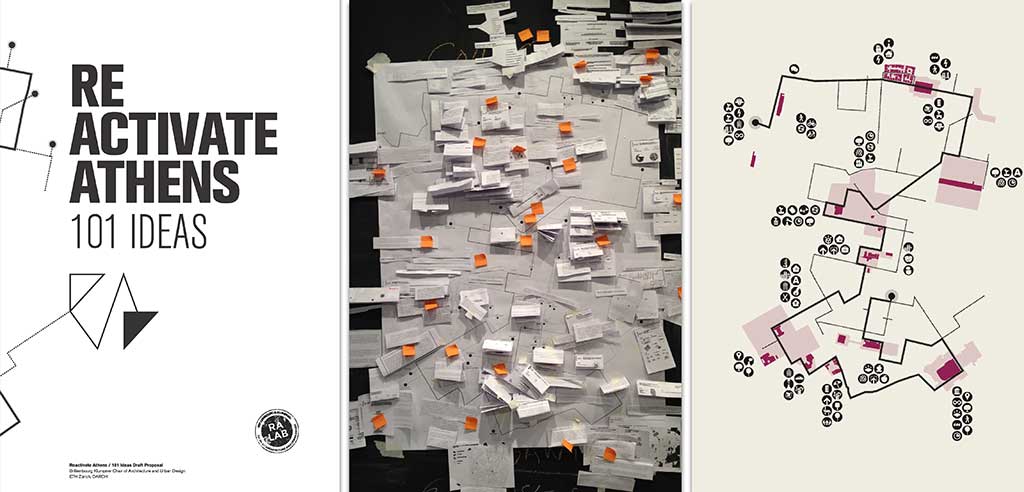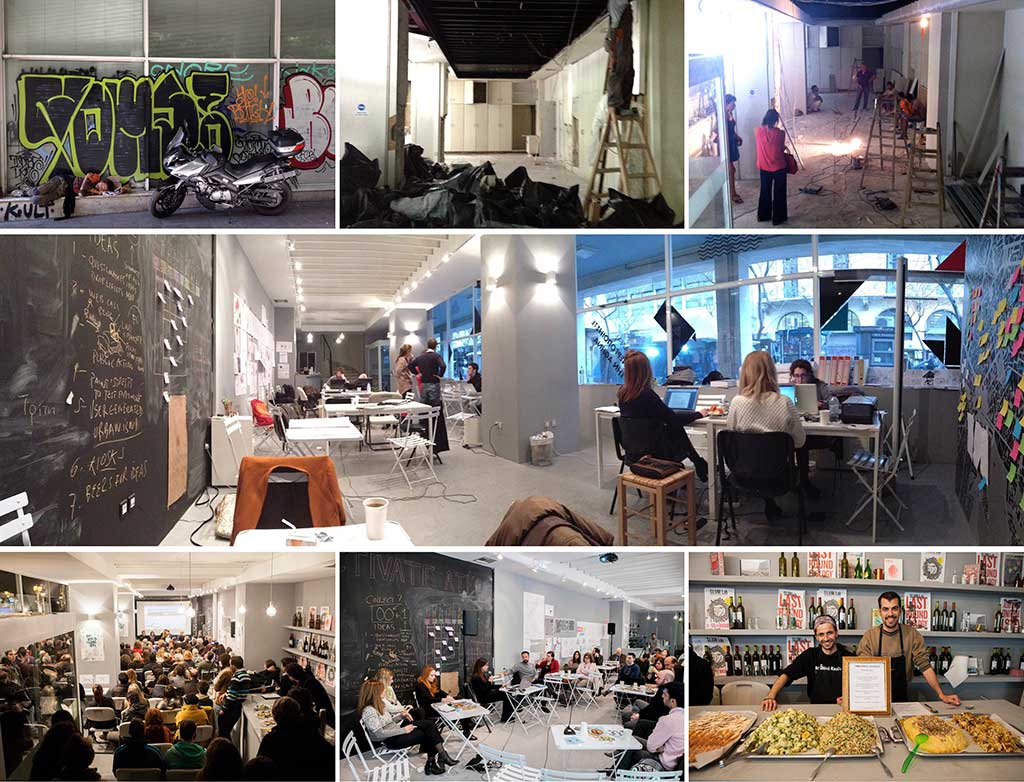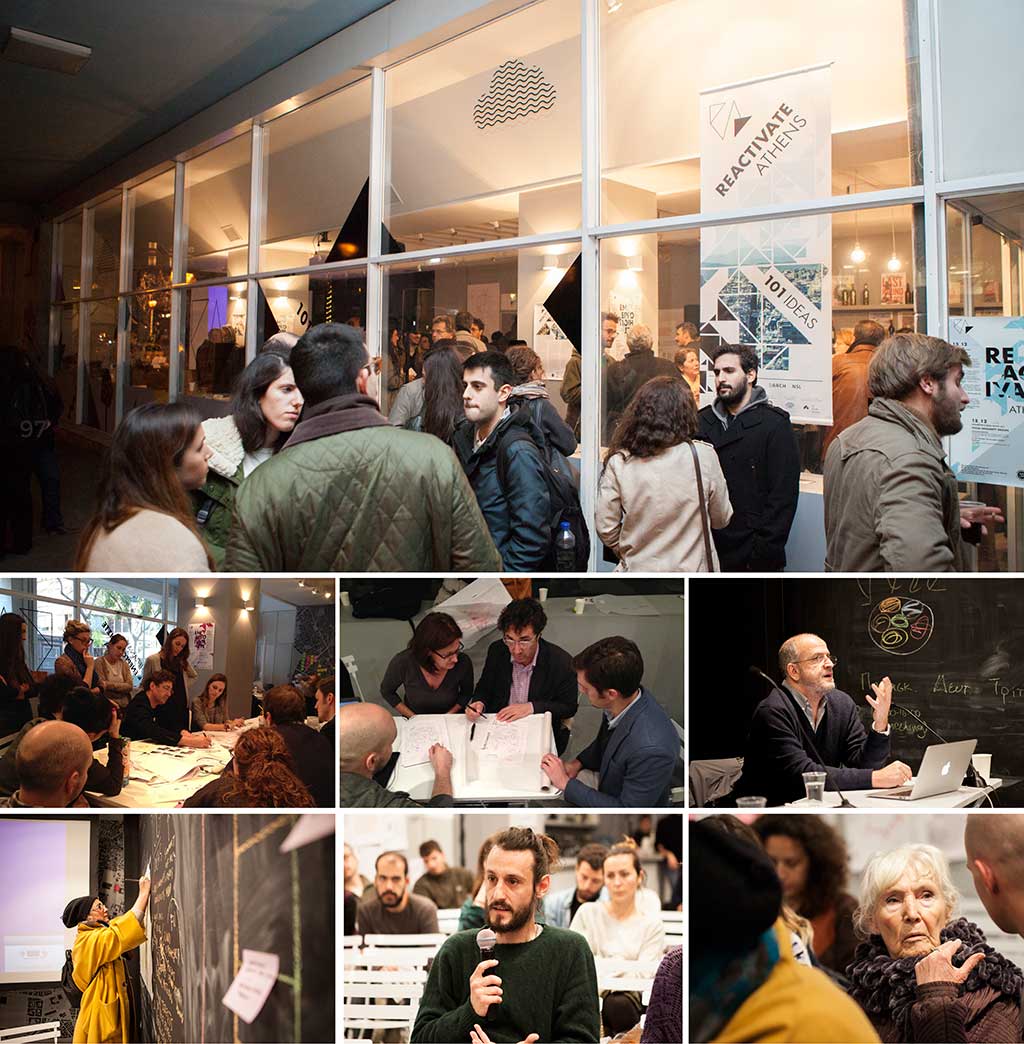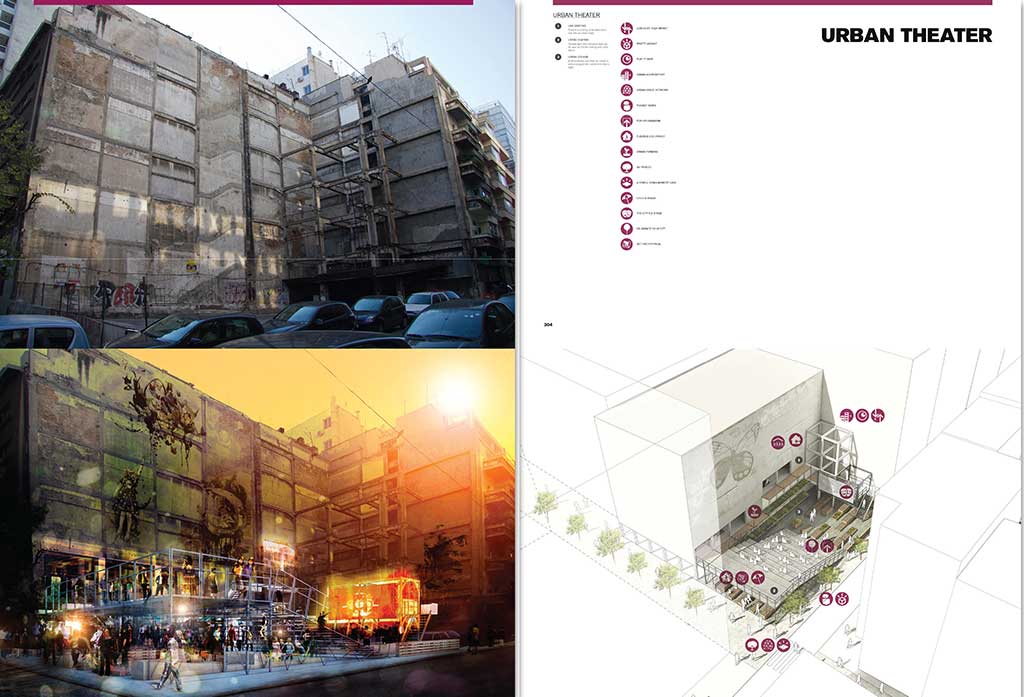




REACTIVATE ATHENS-101 IDEAS (2013-15)
Local architect collaborator for a socially engaged urban design and research program for Athens-by Athens, directed by A. Brillemburg-H. Klumpner. Funded by the Alexander S. Onassis Public Benefit Foundation and under the auspices of the City of Athens, the work proposes ways to upgrade in sustainable ways many lagging areas of the city center, inviting the participation of people. With ETH-DARCH Zurich and U-TT, M. Contento, L. Sherman and D. Wills -design studio coordinators, T. Maloutas and local teams of researchers and architects. In progress, to be made public
REACTIVATE ATHENS-101 IDEAS openly addresses social design and multi-culturalism in decaying parts of the city center, where intense problems, inequalities and discrimination are evident as people -both Greeks and immigrants- are marginalized away from the workings of society at large. Homelessness, raging unemployment and discontinued economic activities exacerbated by the crisis make people vulnerable while at the same time local buildings remain vacant or underused. Therefore, the intention was not to design the city but a way of thinking about it, revealing a new urban model, one correlating needs to existing resources (vacant buildings and spaces). An original urban environment is thus considered for residents and visitors, avoiding standard formulas for urban regeneration and enhancing the areas’ identities.
Following establishment of the RA LAB studio near Omonia Sq., an active open platform invited people to debate and present ideas. Site specific research was conducted, 8 activation events took place covering sociology-art-films-architecture-society, various groups operating in the city shared their views, and 200 interviews were taken from people of all ages and backgrounds who visited RA LAB. Almost 4.000 people answered questionnaires, and their ideas were classified, processed and synthesized in a number of design proposals. In view of today’s socio-economic reality, REACTIVATE ATHENS-101 IDEAS advocates that abandonment is not reversible if addressed with traditional planning models.
The task was to reprogram the existing, answer provocations, add meaningful layers of potential to decaying areas, unite people around public spaces and link what happens in Athens with other cities. The work provides tools and the visual assistance necessary to communicate its findings. Design (1) generated solutions for marginalized populations, (2) framed a new mind-set concerning program, typology, technology, land tenure, finance and project implementation, and (3) provided viable solutions and framed policy suggestions. The proposals are seen as case studies, the methodology as a tool box with transformative capacity, and the vision as a road map -since the proposals are flexible and can be applied elsewhere in the city. REACTIVATE ATHENS-101 IDEAS is about remodeling the urban fabric with a social content re-appropriation and an economic effectiveness, serving a socially integrative spirit which is necessary for the reactivation of these neighborhoods.